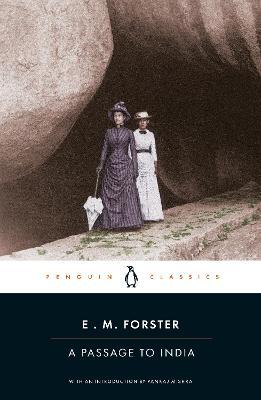E. M. Forster was born in late-Victorian London in 1879 and died in 1970. Educated at King's College, Cambridge, Forster made his name as a writer before the First World War, publishing four well- received novels:
Where Angels Fear to Tread (1905),
The Longest Journey (1907),
A Room with a View (1908),
Howards End (1910) and a collection of short stories,
The Celestial Omnibus (1911). For almost fifty years after
A Passage to India (1924), Forster ceased publishing fiction. A public intellectual and pungent social critic, Forster championed liberal beliefs, protesting fascism, the British occupation of Egypt and India, communism, Cold War militarism, censorship, anti-Semitism, and racism. His advocacy took many forms. Forster was a pioneer on the BBC's India Service and published influential nonfiction, including
Two Cheers for Democracy (1951) and
Aspects of the Novel (1927). He experimented with travel writing and biography, and (with Eric Crozier) wrote the libretto for Benjamin Britten's opera
Billy Budd (1951). Since the posthumous publication of
Maurice (written in 1914, published in 1971) and
The Life to Come and Other Stories (1972), Forster has been rediscovered and reappraised as a prophetic writer of queer fiction.
Pankaj Mishra (introduction) writes regularly for
The New Yorker,
The Guardian, the
London Review of Books, and
Bloomberg View, and is the author of
Bland Fanatics: Liberals, Race, and Empire;
Age of Anger: A History of the Present;
From the Ruins of Empire: The Revolt Against the West and the Remaking of Asia;
Temptations of the West: How to Be Modern in India, Pakistan, Tibet, and Beyond;
An End to Suffering: The Buddha in the World; and the novels
Run and Hide and
The Romantics. A fellow of the Royal Society of Literature, he was born in North India and now lives in London.












